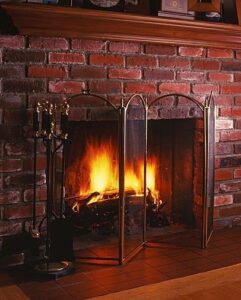As a Miami resident, you know that keeping your AC running smoothly in the intense heat is not just a luxury but a necessity. The humid and hot climate can put a lot of strain on your air conditioning unit, making it crucial to understand how to maintain it effectively. In this article, I’ll share some practical tips and insights that will help you ensure your air conditioning system operates efficiently throughout the sweltering summer months.
Understanding Your AC System
Before diving into maintenance tips, it’s essential to understand the basic components of your AC system. Generally, an air conditioning unit consists of the following parts:
- Compressor: The heart of the system, responsible for circulating refrigerant.
- Condenser: This component releases heat from the refrigerant.
- Evaporator Coil: It absorbs heat and humidity from the indoor air.
- Air Filter: Captures dust, dirt, and allergens to ensure clean airflow.
By familiarizing yourself with these components, you can identify potential issues and understand the importance of regular maintenance.
Regular Maintenance is Key
One of the most effective ways to keep your AC running smoothly is through regular maintenance. Here are some practical steps you can take:
Change Your Air Filter
One of the easiest tasks you can do is to change your air filter regularly. A clogged filter restricts airflow, causing your system to work harder and potentially leading to breakdowns. Aim to check and replace the filter at least every three months, or more frequently if you have pets or allergies.
Keep the Outdoor Unit Clean
Ensure that the outdoor condenser unit is free from debris, such as leaves, dirt, and grass clippings. A dirty condenser can significantly reduce your AC’s efficiency. Make it a habit to check your unit regularly, especially after storms or heavy winds.
Clear the Drainage Line
The condensate drain line can become clogged with algae and dirt, leading to water damage and increased humidity levels in your home. Regularly check the line and use a mixture of vinegar and water to keep it clear. This simple step can prevent major issues down the road.
Signs Your AC Needs Attention
Sometimes, despite your best efforts, your AC system may show signs of trouble. Here are some red flags to watch out for:
Unusual Noises
If you hear strange sounds, such as banging, hissing, or clanking, it could indicate a mechanical issue. Don’t ignore these noises; they may signal that your system needs professional attention.
Inconsistent Temperatures
If certain rooms in your home are significantly warmer than others, this inconsistency can indicate problems with your AC system. It could be due to duct issues or a failing compressor. A thorough inspection is recommended to diagnose the problem.
Increase in Energy Bills
Are your energy bills skyrocketing? An inefficient AC system can lead to increased energy consumption. If you notice a sudden spike in your electricity bill, it may be time to schedule a maintenance check.
Professional Inspections and Tune-Ups
While there are many maintenance tasks you can do yourself, having a professional inspection is equally important. A technician can perform a thorough tune-up, checking for any underlying issues that you might not be able to detect. It’s generally recommended to schedule a professional inspection at least once a year.
What to Expect During a Tune-Up
During a professional tune-up, technicians will:
- Inspect and clean the condenser and evaporator coils.
- Check the refrigerant levels and adjust as necessary.
- Inspect ductwork for leaks and proper airflow.
- Test the thermostat for accuracy.
These comprehensive checks can prolong the life of your air conditioning unit and prevent costly repairs.
Investing in Energy-Efficient Solutions
If your AC is older or frequently requires repairs, it might be time to consider investing in a new, energy-efficient model. Modern air conditioning units are designed to use less energy while providing better cooling. Look for units with the Energy Star label, as they meet strict energy efficiency guidelines set by the U.S. Environmental Protection Agency.
Smart Thermostats
Upgrading to a smart thermostat can also help you manage your energy usage. These devices allow you to set schedules, adjust temperatures remotely, and even learn your habits to optimize performance. By using a smart thermostat, you can significantly reduce energy costs while keeping your home comfortable.
Frequently Asked Questions
How often should I change my air filter?
Generally, it’s recommended to change your air filter every 1-3 months, depending on usage and if you have pets or allergies.
What should I do if my AC is not cooling properly?
Check the air filter and ensure it’s clean. If it’s still not cooling, check the outdoor unit for debris. If problems persist, contact a professional.
How can I improve my AC’s efficiency?
Regular maintenance, changing filters, and keeping the outdoor unit clean are key factors in improving efficiency. Consider investing in a smart thermostat as well.
Is it worth it to invest in a new AC unit?
If your current unit is old and frequently breaks down, investing in a new, energy-efficient model can save you money in the long run, both in repairs and energy bills.
Conclusion
Maintaining your AC in Miami’s heat is essential for comfort and efficiency. By following these practical tips and being proactive about maintenance, you can ensure your air conditioning system runs smoothly all summer long. Don’t wait for a breakdown—take action today!
“`






